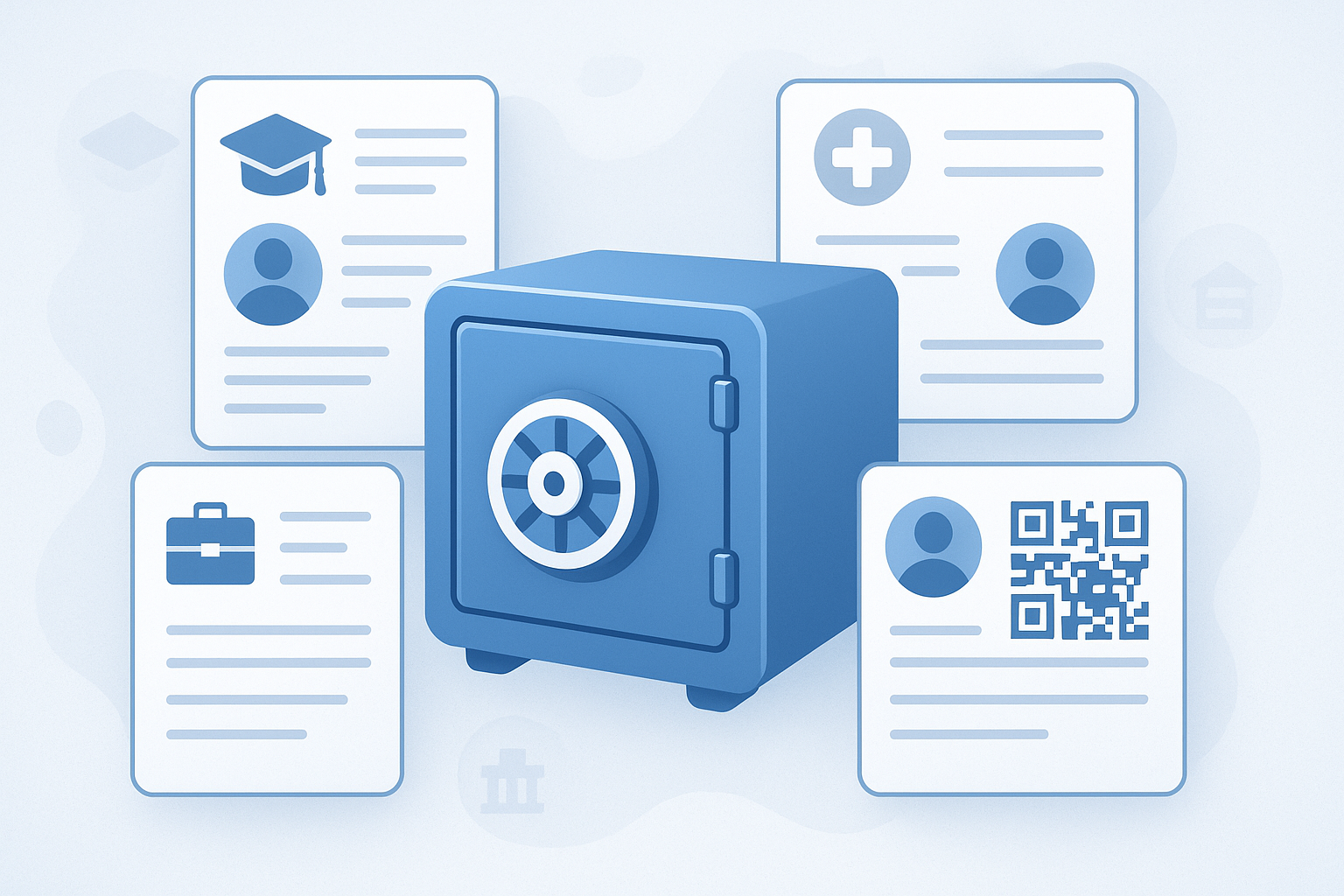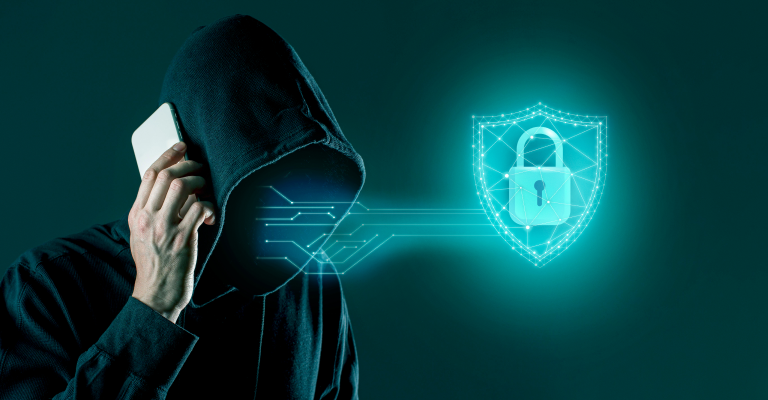Verifiable credentials are changing how identity, credentials, and trust are managed worldwide. As digital transformation speeds up, the need for secure, user-controlled, and instantly verifiable credentials is growing rapidly. According to Grand View Research, the global identity verification market is projected to reach $33.93 billion by 2030, growing at a CAGR of 16.7%. The digital identity solutions market is expected to surpass $98 billion by 2030.
In India alone, over 51.3 crore (513 million) citizens nearly 40% of the population have adopted DigiLocker, the government’s digital wallet for storing and sharing official documents.
This explosive growth is fueled by rising cybercrime (with global costs expected to exceed $10 trillion annually by 2025), regulatory pressure, and the demand for seamless digital experiences. Verifiable credentials (VCs) stored in digital lockers are at the heart of this revolution, enabling individuals and organizations to share and verify identity, qualifications, and entitlements securely and instantly.
What Are Verifiable Credentials?
Verifiable credentials are digital, cryptographically signed documents that prove identity, qualifications, or other claims. Unlike traditional paper documents, VCs are tamper-proof, instantly verifiable, and privacy-preserving. They can be stored in digital lockers or wallets, giving users full control over what they share and with whom.
Why Store Verifiable Credentials in a Digital Locker?
- Security: Credentials are protected by strong cryptography, reducing the risk of forgery and fraud.
- Convenience: Users can access and share credentials anytime, anywhere, from their smartphone or computer.
- Privacy: Selective disclosure allows users to share only the information required, not their entire identity.
- Efficiency: Instant verification streamlines onboarding, compliance, and service delivery across sectors.
Top 5 Use Cases for Verifiable Credentials in a Digital Locker
1. Education Credentials and Academic Records

Overview:
Universities, colleges, and training providers issue digital diplomas, transcripts, and certificates as verifiable credentials. Students store these in their digital lockers and share them with employers or other institutions.
Benefits:
- Instant, tamper-proof verification of qualifications
- Reduced risk of forged degrees and certificates
- Faster admissions and hiring processes
Market Insight:
Platforms like DigiLocker have enabled millions of students in India to store and share academic records securely. Educational institutions worldwide are adopting VCs to combat credential fraud and streamline verification.
Example:
A graduate applying for a job can share a verifiable digital degree with a prospective employer, who can instantly confirm its authenticity without contacting the issuing university.
2. Government Services and Citizen Identity

Overview:
Governments issue digital identity documents such as Aadhaar, driver’s licenses, and passports as verifiable credentials. Citizens store these in digital lockers for use in accessing public services, voting, and social security.
Benefits:
- Enhanced security and reduced identity fraud
- Improved access to government services, especially for remote populations
- Streamlined KYC (Know Your Customer) for banks and telecoms
Market Demand:
India’s DigiLocker has over 51.3 crore users and more than 5.6 billion documents issued, making it one of the world’s largest digital credential platforms. The EU is mandating digital identity wallets for all citizens by 2026.
Example:
A citizen can present a digital driver’s license from their locker for instant verification at a traffic stop or when opening a bank account.
3. Financial Services and KYC/AML Compliance
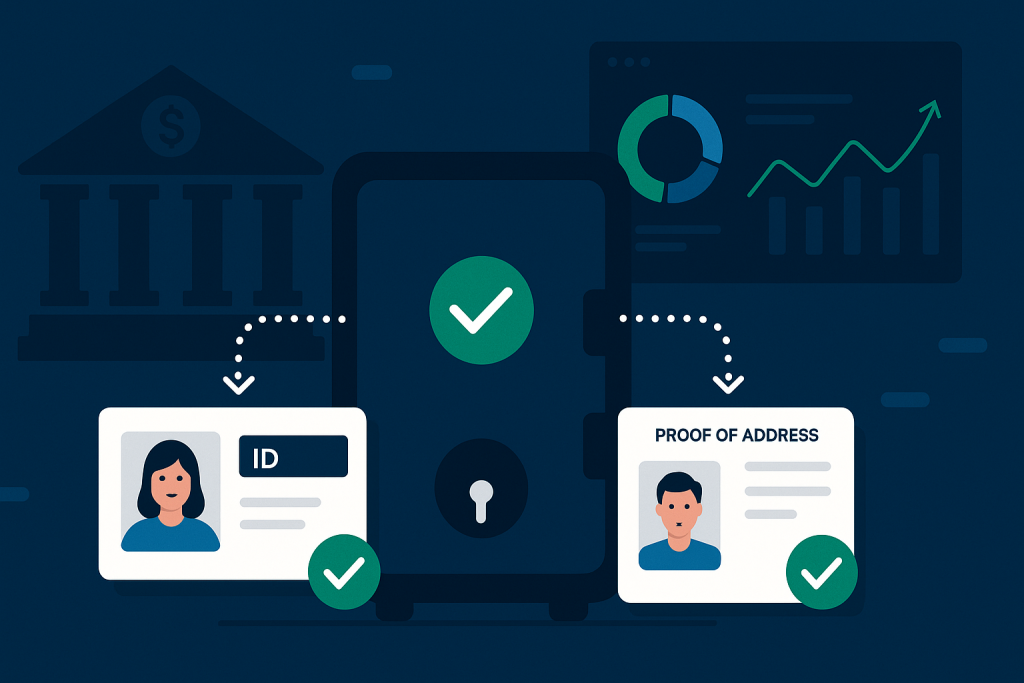
Overview:
Banks and financial institutions use verifiable credentials for KYC and Anti-Money Laundering (AML) compliance. Customers share verified identity and financial credentials instantly, reducing onboarding friction.
Benefits:
- Real-time authentication and reduced fraud
- Privacy protection and regulatory compliance
- Lower onboarding costs and faster customer acquisition
Market Potential:
The global identity verification market is projected to reach $33.93 billion by 2030, with financial services as a key driver. Regulatory requirements are pushing banks to adopt digital KYC solutions.
Example:
A new customer opens a bank account by sharing a verifiable digital ID and proof of address from their digital locker, enabling instant onboarding.
4. Healthcare Records and Insurance
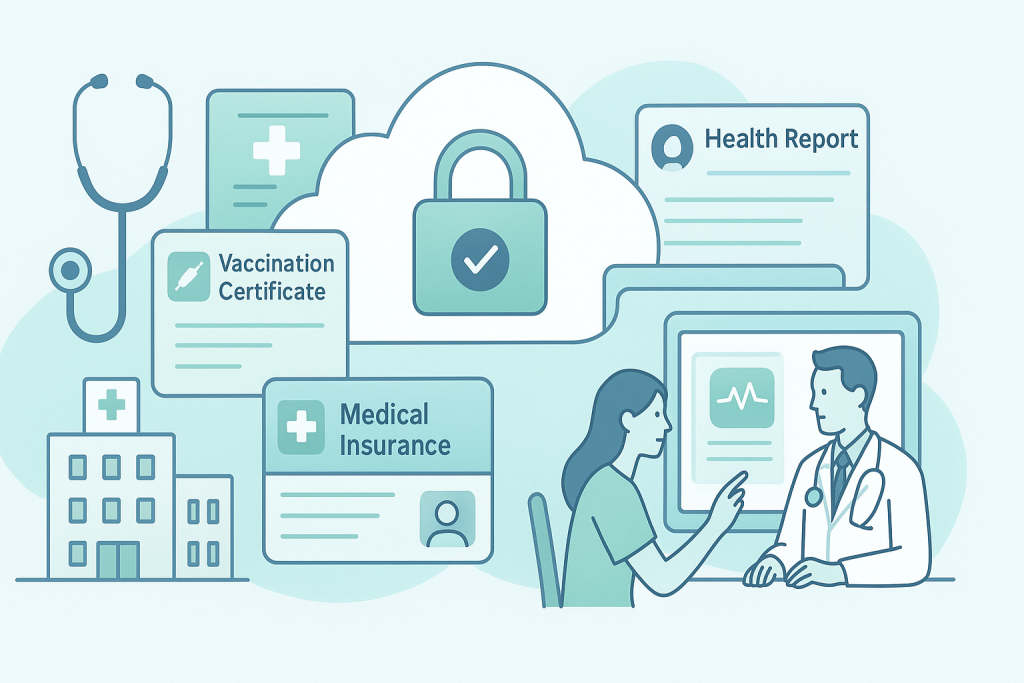
Overview:
Patients store verifiable health records, vaccination certificates, and insurance documents in digital lockers. These can be shared securely with healthcare providers and insurers.
Benefits:
- Improved data privacy and patient control
- Faster access to care and reduced paperwork
- Enhanced claims processing and fraud prevention
Adoption Example:
Digital lockers are widely used for COVID-19 vaccination certificates and health insurance claims. Hospitals and insurers are integrating with digital locker platforms to streamline patient onboarding and claims.
Example:
A patient shares a verifiable vaccination certificate with a travel authority or a new healthcare provider, ensuring instant, trusted verification.
5. Travel, Mobility, and Border Control
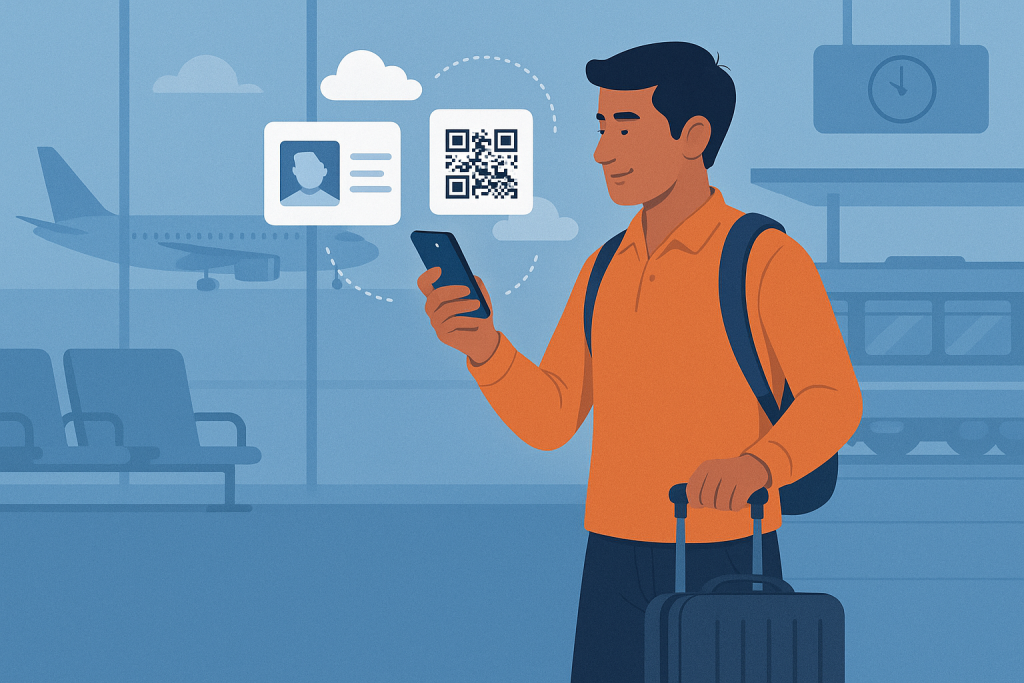
Overview:
Digital travel credentials such as e-passports and visas are issued as verifiable credentials and stored in digital lockers. Travelers present these for seamless border crossings and airline check-ins.
Benefits:
- Faster, paperless travel and reduced risk of document loss
- Enhanced security and privacy
- Streamlined immigration and customs processes
Market Trend:
International pilots (e.g., IATA, Aruba) are demonstrating the use of digital travel credentials, with rapid adoption expected as global standards mature.
Example:
A traveler presents a digital passport and visa from their locker at an airport, enabling instant, contactless verification and faster boarding.
Additional Market Drivers
- Security & Privacy: VCs use cryptographic methods, ensuring tamper-proof, privacy-preserving data sharing.
- User Control: Individuals have full ownership and selective disclosure of their credentials, supporting self-sovereign identity models.
- Regulatory Push: Governments and regulators are mandating digital identity and credentialing solutions, accelerating adoption.
The Future: Global Standards and Seamless Experiences
The World Wide Web Consortium (W3C) has published Verifiable Credentials 2.0 as a global standard, making digital credentials interoperable, secure, and privacy-respecting across platforms and borders. Major technology companies Microsoft, Google, Apple are rolling out verifiable credential systems, promising seamless user experiences and mass adoption.
What’s Your Next Steps!
Verifiable credentials stored in digital lockers are transforming how we prove who we are, what we’ve achieved, and what we’re entitled to across education, government, finance, healthcare, and travel. The market is booming, adoption is accelerating, and the technology is ready for prime time.
Ready to future-proof your organization’s identity and credentialing processes?
Contact EveryCRED today to discover how you can issue, manage, and verify digital credentials securely and efficiently. Empower your users, streamline your operations, and join the digital identity revolution.
Fill out the inquiry form to partner with EveryCRED and unlock the power of verifiable credentials.

 15th July, 2025
15th July, 2025 